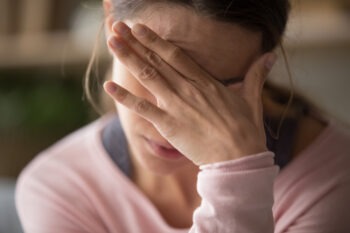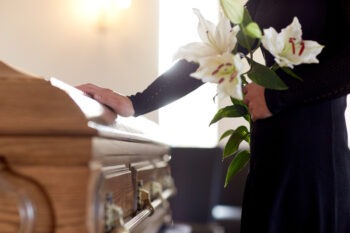I once tried a wrongful death case involving a young woman who died in a trucking accident. I presented a grief expert to discuss the ramifications of my client, the deceased woman’s adult father, having to live knowing that his twenty-three-year-old daughter had died at the hands of a careless actor. The defense objected to me utilizing a grief counselor as an expert witness. The judge disagreed, and we went on to receive a $5,000,0000 verdict in favor of my client that was reduced in judgment to $1,700,000 because of the comparative negligence of people who had already settled. The defendant appealed the judgment stating, in part, that the judge should never have allowed the testimony of the grief expert, Dr. Linde. Here’s the portion of our reply brief related to that issue. The name of the Plaintiff has been changed:
Start Your Free Case Evaluation
Contrary to Appellant’s assertions, there is no blanket ban on presenting expert grief testimony, regardless of the type of case. Allowing such testimony is well within the discretion of the trial court. Florida courts have never held that testimony by a grief expert is automatically barred. Appellant fundamentally misunderstands the holdings of Angrand v. Key, 657 So. 2d 1146 (Fla. 1995) on which it bases its argument that the trial court abused its discretion by allowing Dr. Linde to testify. Angrand is not the blanket ruling excluding expert grief testimony that Appellant makes it out to be.
Start Your Free Case Evaluation
In fact, Angrand recognizes the “broad discretion” of the trial court “in determining the subject on which an expert may testify in a particular trial.” Id. at 1148. The Angrand court merely reinforced, as has always been the law, that there are limits to that discretion and particularly with regards to grief experts the courts must be careful to only admit “expert testimony which will assist the trier of fact.” Id. at 1149. However, it remains true that a trial court’s ruling regarding qualification and admissibility of an expert’s testimony “will not be disturbed unless a clear abuse of discretion has been shown.” Id. at 1148; see also, Gulley v. Pierce, 625 So. 2d 45, 50 (Fla. 1st DCA 1993).
Start Your Free Case Evaluation
Just as Angrand does not stand for the proposition that expert testimony should never be allowed, it does find that cases involving the death of a child should be treated differently. Appellant’s allege that the trial court’s ruling was based on the fact that the instant case involves the death of a child, however, that is not what made Dr. Linde’s testimony in this case so vital. The trial court considered a number of factors in making its ruling, most notably, Mr. Plaintiff’s diagnosis of “complicated grief,” a diagnosis which, fortunately, would be outside the ordinary understanding of most jurors as it goes far beyond typical feelings of grief and bereavement. The trial court ultimately admitted Dr. Linde’s testimony, finding, “there may be a juror who needs some understanding from a doctor’s perspective as to the type of grief the father is suffering. So, therefore we’ll limit it to that.” (R. 2961). Assisting the trier of fact is an entirely permissible reason to admit expert grief testimony pursuant to Angrand and the court properly limited Dr. Linde’s testimony to only those areas that would do so.
The trial court also considered additional other factors in determining the admissibility of Dr. Linde’s testimony. One of these factors was availability of other testimony or evidence to describe Mr. Plaintiff’s pain, a factor enumerated by Angrand, 656 So. 2d at 1149. Another is “the experience, age, and other relevant information about the jurors.” Id. at 1149. Although the trial court knew nothing about the prospective jurors at the time of its ruling, it would be reasonable to expect vanishingly few of them to have familiarity with complicated grief. Considering that the jury ultimately sat consisted of three jurors who have never had any children, including two young, unmarried, adults in their twenties, Dr. Linde’s testimony may have been particularly helpful to this jury, which particularly lacked relevant life experiences. If the makeup of the jury had turned out otherwise, Appellant could easily have re-raised its argument as to the helpfulness of Dr. Linde’s testimony.
This Court has upheld the admission of expert grief testimony in the wake of Angrand. In Horton v. Channing, 698 So. 2d 865 (Fla. 1st DCA 1997), this Court affirmed the court below’s decision to admit expert grief testimony in a case involving the death of a child. In Horton, the expert is question had treated the family suffering from loss and was able to provide specific information about them and their grieving process that was not within the ordinary experience of the jury, and thus her testimony was held to be proper. Id. at 868. Although Dr. Linde did not treat Mr. Plaintiff, he did meet him and personally evaluated him, and his testimony is based explicitly on Mr. Plaintiff’s specific condition and experience of mental pain, not the broad concept of grief and bereavement generally, which would have been impermissible.
Notably, the Angrand court did not distinguish between treating and reviewing experts, so long as the testimony is helpful, stating:
Clearly, psychiatrists, psychologists, or other qualified physicians who have treated a survivor or reviewed records concerning a survivor’s treatment for physical or mental sequelae related to mental pain and suffering caused by a survivor’s decedent may provide testimony which will assist the jury in understanding evidence and deciding damages issues.
Angrand, 657 So. 2d at 1148-49. As a hybrid treater/reviewer, Dr. Linde’s testimony could not have been permissibly excluded on those grounds.
Another post-Angrand decision that supports the trial court’s ruling is St. Mary’s Hosp., Inc. v. Brinson, 685 So. 2d 33, 36 (Fla. 4th DCA 1996). There, the appeals court found that the trial court did not abuse its discretion in allowing expert grief testimony in light of Angrand because “many jurors did not have any experience with a young child’s death or the grief that follows…” So long as the trial court can “reasonably conclude that the testimony would assist the jury’s understanding” it was not an abuse of their broad discretion to allow it. Id.
Finally, Dr. Linde’s testimony in no way deprived the jury of their decision-making power regarding damages. One of the concerns of Angrand was that expert testimony could infringe on these calculations made by the jury, cautioning that “there is no objective standard by which to measure these kinds of damages. Technical or mathematical calculation are impossible to make. The jury, guided by its judgment and everyday life experiences is in the best position to make a fair assessment of these damages.” 657 So. 2d at 1149. Dr. Linde never equated Mr. Plaintiff’s grief to monetary damages or suggested anything of the kind. Any arguments thus raised by Appellant are easily put to bed.
I believe the admissibility of a grief expert is clearly within the discretion of the judge. Unfortunately, that means that some judges might be inclined to reject the testimony of a grief expert on the grounds that the grief related to the loss of a loved one is something any normal person can understand. For that reason, I highly encourage my clients to seek grief counseling. Judges are much more likely to allow the testimony of treating professionals, who clearly have details to add related specifically to the plaintiff’s grief, than they are to experts who come in and offer opinions after one or two information gathering sessions with the plaintiff.
If you are considering pursuing a wrongful death claim, I highly recommend you contact an experienced wrongful death lawyer immediately. These cases live or die by the evidence your attorney gathers related to the underlying facts of the death-causing incident and also the evidence related to your mental and emotional pain and suffering. Your attorney should be able to guide you to a counselor who can help with your grief while at the same time building the evidence documenting the severity of your mental and emotional pain and suffering.
Sincerely,
Jimmy Fasig
Wrongful Death Attorney
Fasig Brooks Law Offices
We know what needs to be done to facilitate a fair settlement






